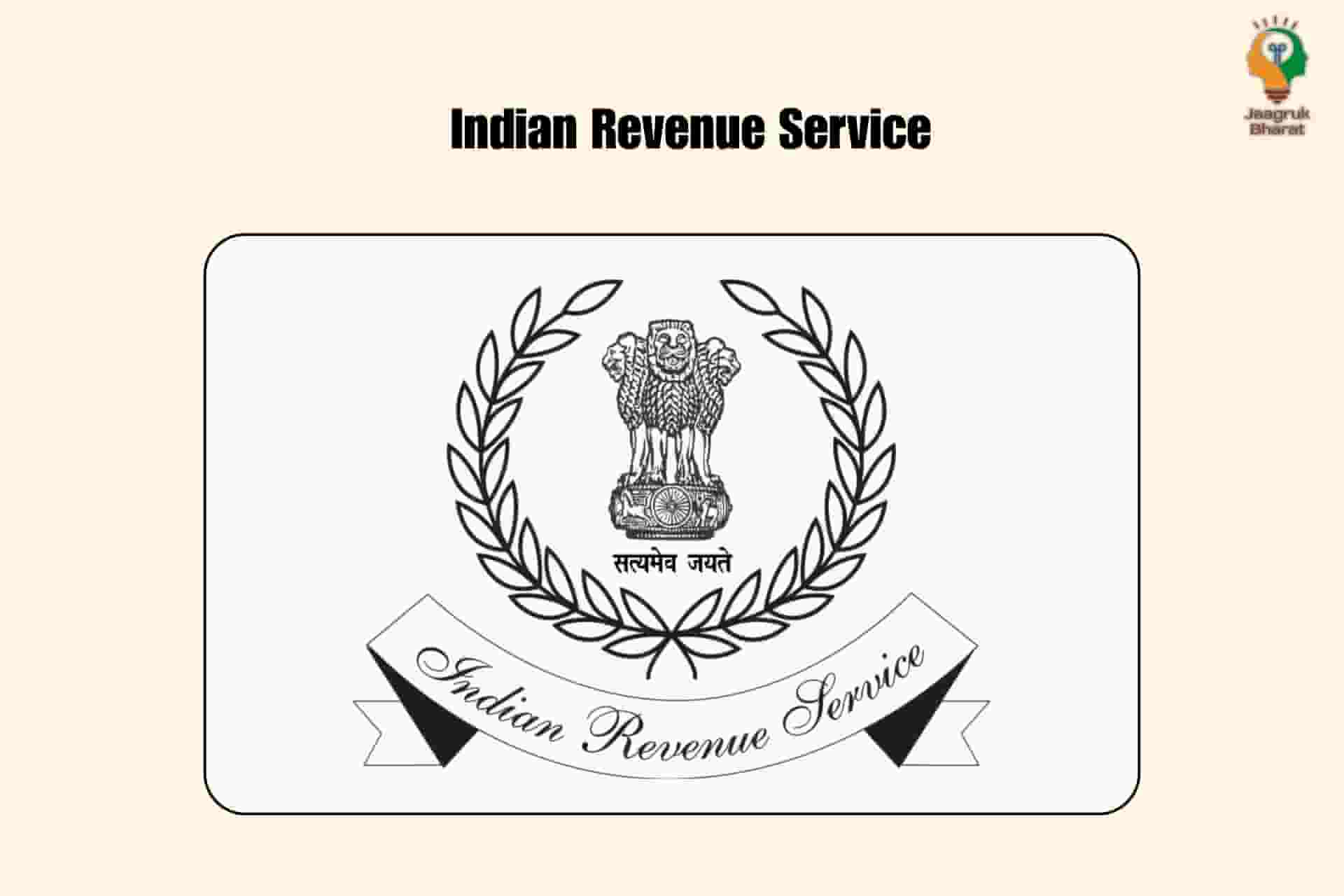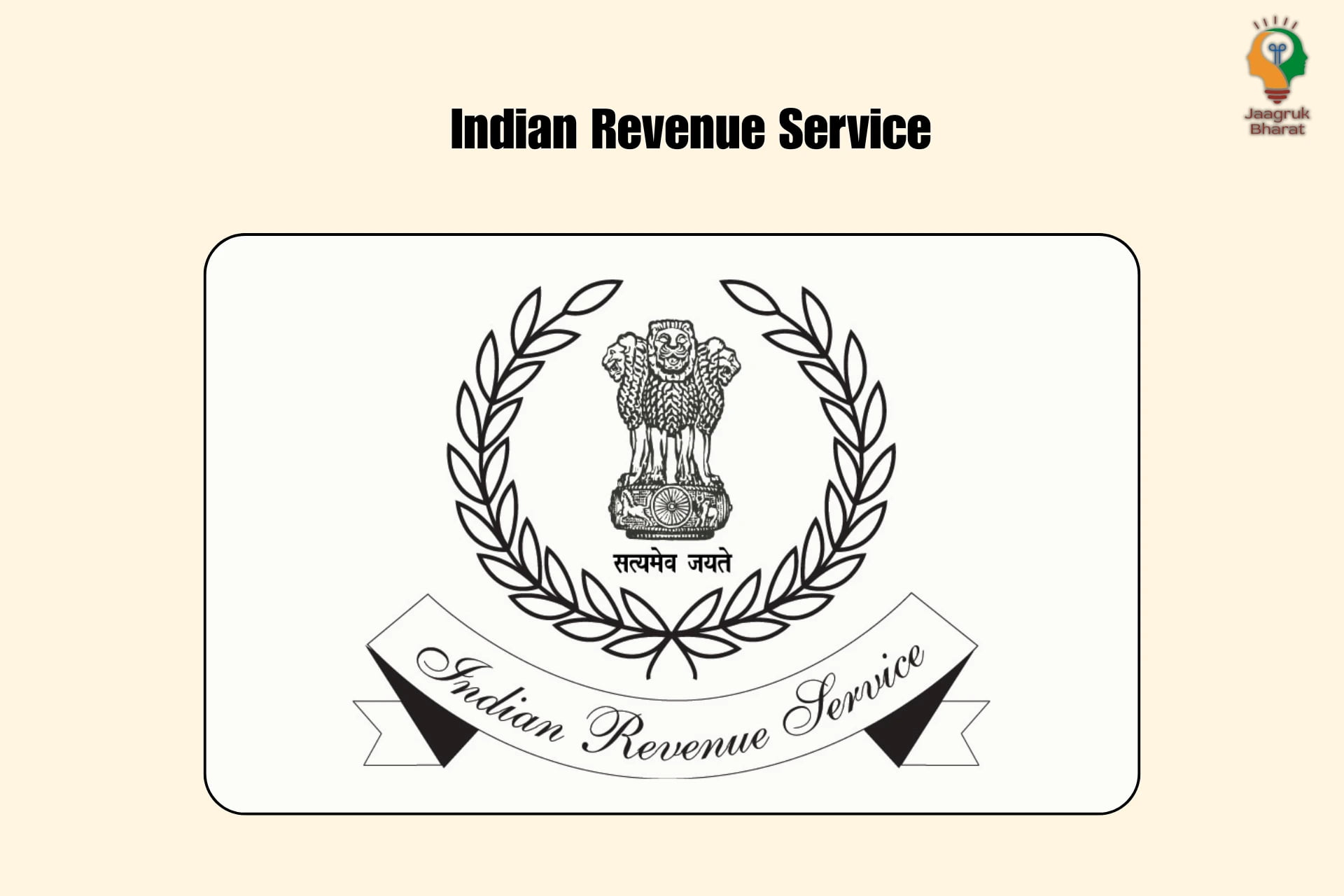Indian Revenue Service (IRS): Roles And Career Path In 2025
Updated: 23-09-2025 at 5:48 AM
1k


The Indian Revenue Service (IRS) has significant importance in India's economy. The IRS handles and has oversight over the collection and management of direct and indirect taxes. As a service under Group A of the Central Civil Services, the IRS is one of India's prestigious civil services. IRS officers are required to safeguard the fiscal integrity of the nation. If you want to know who IRS officers are, what they do and how you can become one, this guide will provide you with that information.
Overview
This discussion will give you an insight into the structure, role, and importance of the IRS in the country’s institutional and financial structures.
| Feature | Details |
|---|---|
| Full Form | Indian Revenue Service |
| Organizing Body | Union Public Service Commission (UPSC) |
| Service Group | Group 'A' Civil Service |
| Branches | Income Tax (Direct Taxes), Customs & Indirect Taxes |
| Number of Attempts | General: 6; OBC: 9; SC/ST: Unlimited |
| Training Institutes | National Academy of Direct Taxes (NADT), Nagpur; National Academy of Customs, Indirect Taxes and Narcotics (NACIN) |
| Initial Posting | Assistant Commissioner of Income Tax |
| Top Position | Principal Chief Commissioner of Income Tax |
What Is The Meaning of IRS?
IRS stands for Indian Revenue Service. The IRS is a Central Civil Service in Group 'A' under the Centre's administrative structure. The service is essentially responsible for collecting and managing taxes, as well as ensuring compliance with the laws governing taxation.
Also Read: What Is Capital Gains Income? Tax Rules & Examples
What Is The Role And Functions Of The Indian Revenue Services In India?
The IRS in India is an essential component of governance, particularly fiscal administration. IRS officers constitute the backbone of income tax compliance and enforcement and carry out the following functions:
-
Design, assess, and collect direct and indirect taxes for individuals and entities.
-
Conduct audits and investigations to promote compliance.
-
Strictly enforce and monitor tax to discourage evasion.
-
Draft and interpret tax laws and advise the government on tax regimes.
-
Manage tax-related litigation in various tribunals and courts.
-
Maintain income, wealth and assets records for centralised information about taxpayers.
-
Enforce international taxation and transfer pricing.
How Does The Indian Revenue Service Serves As A Control Body Of Taxes And Income In India?
The Indian Revenue Service guarantees a consistent stream of revenue for the government. As a control body, it does many more activities related to taxes and income, including:
-
Administration of income tax, corporate tax, and goods & services tax (GST) legislation.
-
Facilitate voluntary tax compliance through awareness and education.
-
Detection and prosecution of tax evasion through surveys, raids, and searches.
-
Data-based profiling of taxpayers for compliance monitoring.
-
Negotiation of formal tax treaties for tax and exchange of information.
-
International cooperation with organisations such as the OECD.
The IRS also stores several databases and systems (e.g., the Income Tax Business Application "ITBA", Annual Information Return "AIR", or Centralised Processing Centre "CPC") so it can monitor flows of income.
What Are The Rules And Laws Set In Place By The Indian Revenue Service?
From a more general spectrum, the IRS is primarily responsible for determining, distributing and sustaining the tax policy that keeps up with economic trends. Below are some of the important laws and rules enforced by the IRS:
-
Income Tax Act, 1961: This is the act that governs income taxation in India.
-
Goods and Services Tax Act, 2017: This law unified all the indirect taxes that existed.
-
Customs Act, 1962: This act governs import/export duty and border laws.
-
The Wealth Tax Act (abrogated): This used to tax the net wealth of individuals and corporations.
-
The Benami Transactions Prohibition Act: To prevent individuals from hiding the ownership of assets under made-up names.
-
The Black Money (Undisclosed Foreign Income and Assets) and Imposition of Tax Act, 2015 - This law was introduced to deal with undisclosed foreign income and assets.
How The IRS (Indian Revenue Service) Works In India?
The Indian Revenue Service operates in two primary streams, both of which are integral to overseeing the country’s direct and indirect taxation systems. Let’s take a closer look at how these IRS streams function to maintain tax compliance and regulate the use of finances across India:
-
IRS (Income Tax): Deals with personal, corporate, and wealth taxes.
-
IRS (Customs & Indirect Taxes): Deals with customs duties, excise, and GST enforcement.
IRS officers are posted in field formations, headquarters like the Central Board of Direct Taxes (CBDT), and the Central Board of Indirect Taxes and Customs (CBIC).
What Are The Key Achievements Of The Indian Revenue Services For India Over The Years?
Over the years, IRS officers have made substantial contributions to the Indian economy:
-
The Digitisation of Tax Filing: The IRS pioneered e-filing of income tax returns to make it easier and more transparent.
-
GST (Goods and Services Tax): They played a critical role as officers and were involved in the GST enactment from the ground level.
-
Expansion of the Tax Base: In a manner of speaking, they have expanded India’s tax base tremendously.
-
International Engagement: IRS, through the years, have been pivotal in providing India with the opportunity to sign multi-national treaties across the globe in curbing tax avoidance, evasion and domestic tax repatriation treaties with new partners like the USA.
-
Combating Black Money: IRS officers have been instrumental in identifying, discovering, and prosecuting black money and shell company scams.
-
Tax Reforms: IRS officers have served as an advisor pendulum during the continued Direct Tax Code discussions and the simplification of taxes and tax codes.
Also Read: Forms Released For Income Tax Return Filing For AY 2025–26
Indian Revenue Service Officer Jobs And Salaries
Do you want to know about various benefits and roles in this field? Let's break down job titles, responsibilities, and pay scale you can expect as an IRS officer.
| Rank | Pay Scale (₹) | Grade Pay (₹) | Approx. Salary (₹) |
|---|---|---|---|
| Assistant Commissioner | 15,600 – 39,100 | 5,400 | 56,100 – 1,77,500 |
| Deputy Commissioner | 15,600 – 39,100 | 6,600 | 67,700 – 2,08,700 |
| Joint Commissioner | 15,600 – 39,100 | 7,600 | 78,800 – 2,09,200 |
| Additional Commissioner | 37,400 – 67,000 | 8,700 | 1,23,100 – 2,15,900 |
| Commissioner | 37,400 – 67,000 | 10,000 | 1,44,200 – 2,18,200 |
| Principal Commissioner | 75,500 – 80,000 (Fixed) | - | 1,82,200 – 2,24,100 |
| Chief Commissioner | 75,500 – 80,000 (Fixed) | - | 2,05,400 – 2,24,400 |
| Principal Chief Commissioner | 80,000 (Fixed) | - | 2,25,000 |
Additional benefits include housing, transportation, medical facilities, and retirement pensions.
What Are The Possibilities Of Future Developments In Indian Revenue Services?
As the world continues to face greater complexities in financial systems, the IRS is constantly adapting and evolving. In the future, possibilities include:
-
Artificial Intelligence and Big Data: Greater use of AI in audits and fraud detection, and enforcement.
-
Real Time Tax Monitoring: Real-time transaction tracking, more quickly and accurately than is currently possible.
-
International Tax Law Integration: Increased implementation of Base Erosion and Profit Shifting (BEPS) norms.
-
Blockchain for Transparency: Potential use of blockchain technology in determining accountability for audit trails.
-
Expanded Role in Climate Taxes: The IRS could potentially play a role in green tax enforcement in the future.
-
Greater Transparency and Ease: The experience of taxpayers in compliance processes should improve as the government reforms tax compliance practices and responsibilities to make it easier for tax compliance.
How To Become An Indian Revenue System Officer In India?
If you are ready to take the first step, this section will detail the whole process for you. Read about your qualifications and application process to become the next IRS officer in 2025.
Step 1: Educational Requirements: Should have a Degree in any subject.
Step 2: Age Requirements: Should be between 21 and 32 years old (with age relaxations for categories).
Step 3: UPSC Civil Services Examination.
Must clear all three steps:
-
Preliminary Exam: Objective-based questions relating to general studies and aptitude.
-
Main Exam: Descriptive papers relating to in-depth knowledge of different subjects.
-
Personality Test (Interview): Questions on personality traits, communication skills, and suitability for the service.
Step 4: Training: After selection, candidates will undergo training at the National Academy of Direct Taxes (NADT) in Nagpur or the National Academy of Customs, Indirect Taxes and Narcotics (NACIN), depending on the branch.
Conclusion
The Indian Revenue Service is not only a career but a service that is at the core of the economic sovereignty of the country. IRS officials apply tax laws, enforce compliance and build a transparent financial system. There is increasing digitalisation, collaboration on an international level, and reform of policies, while the IRS remains at the core of the governance of the country. If you are seeking an opportunity to join the nation’s premier services and contribute to impactful change, the IRS offers an honourable as well as a challenging career pathway.
Get the latest updates on government schemes and policies with Jaagruk Bharat. Join India's biggest Jaagruk Bharat community. Share your thoughts, questions, and favourite topics with us.
0
0
1k
0
0
1k Views
0
No comments available





Our Company
Home
About
T&C
Privacy Policy
Eula
Disclaimer Policy
Code of Ethics
Contact Us
Cancellation & Refund Policy
Categories
Women
Insurance
Finance
Tax
Travel
Transport & Infrastructure
Food
Entertainment
Communication
Government ID Cards
E-commerce
Traffic guidelines
Miscellaneous
Housing and Sanitation
Sports
Startup
Environment and Safety
Education
Agriculture
Social cause
Employment
Disclaimer: Jaagruk Bharat is a private organization offering support for documentation and government scheme access. We are not affiliated with any government body. Official services are available on respective government portals. Our goal is to make processes easier and more accessible for citizens.
All Copyrights are reserved by Jaagruk Bharat